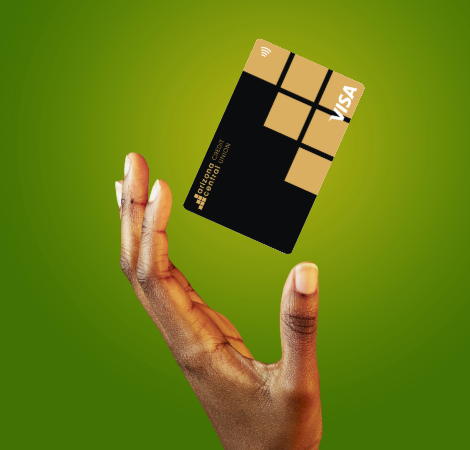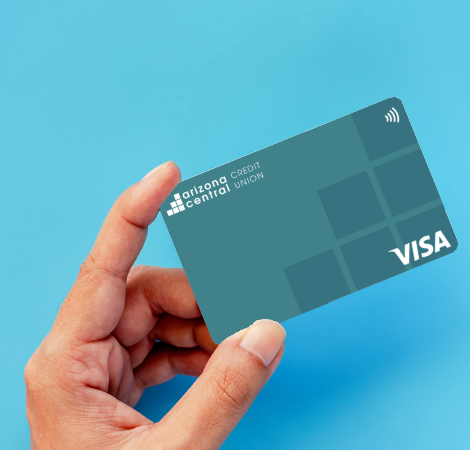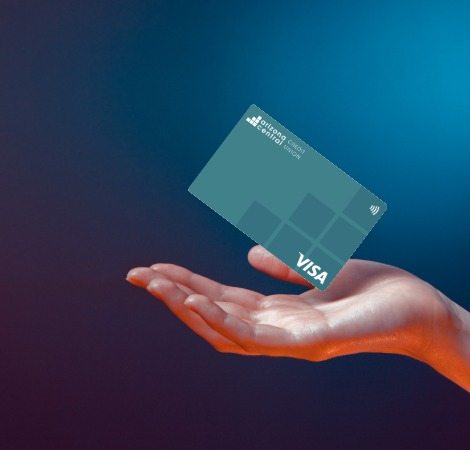Credit Cards
Visa® Gold
Interested in a higher limit and less interest? Have more freedom with the Visa® Gold card!
- $3,000 minimum credit limit
- Purchase security
- Travel emergency assistance
- Travel accident insurance


Visa® Classic
With low rates and no fees, the Visa® Classic was designed with you in mind.
- $500 minimum credit limit
- Travel accident insurance
Visa® Secured
Looking to build or rebuild your credit? This low rate, fee-free card is for you!
- Maximum credit limit secured by your savings
- Travel accident insurance
- $300 minimum credit limit


What Credit Card Should I Apply For?
There are a number of factors you should consider when looking into opening a credit card.
- Credit Score: Your credit score will help determine your interest rate and credit limit. If you have a lower score or are just starting to build your credit, you may consider a secured card.
- Credit Limit: Different cards come with different minimum credit limits. If you know you have a big purchase coming up, or if you just like the safety of a high credit limit, consider the Visa® Gold card.
- Interest Rate: Interest is a big part of any lending option. Be sure to find a rate that you’re comfortable with.
- Rewards: If you choose to, credit cards can be a great way to earn rewards like cash-back or travel credits. Be forewarned though, cards with too-good-to-be-true rewards often come with steep interest rates and sometimes even membership fees.
What is the Easiest Credit Card to Get Approved For?
Because so many factors go into how one is approved for a credit card, there’s no easy answer to this question. However, a secured credit card may be more accessible for most people, as it limits a lender’s liability. If you need a credit card fast, consider a secured card.
What Are the Best Tips for First-Time Credit Card Users?
- Keep balances low. If you’re just getting your first credit card, it’s tempting to go buy all those things you couldn’t fund based on your paycheck alone. But it’s best not to go overboard. Try not to make purchases you can’t reliably pay off in a short period of time. Additionally, keeping balances below 30% of your maximum credit limit can help boost credit scores.
- Pay your bill on time. Even if you can’t pay off your credit card in full, paying on time is important. Delinquent—late—payments can negatively affect your credit for years.
- Review your credit statement. While one of the benefits of a credit card is it has fraud protection not often provided for a debit card, still monitor your transactions to make sure there’s nothing fraudulent.
- Do use your credit card. While it may be tempting after reading tip #1 to not spend at all, that doesn’t do you or your credit score any good. Keeping an active card with routine transactions will prevent an issuer from closing your accounts.
*To safeguard your credit rating, debt cancellation protection is also available at an additional cost.


